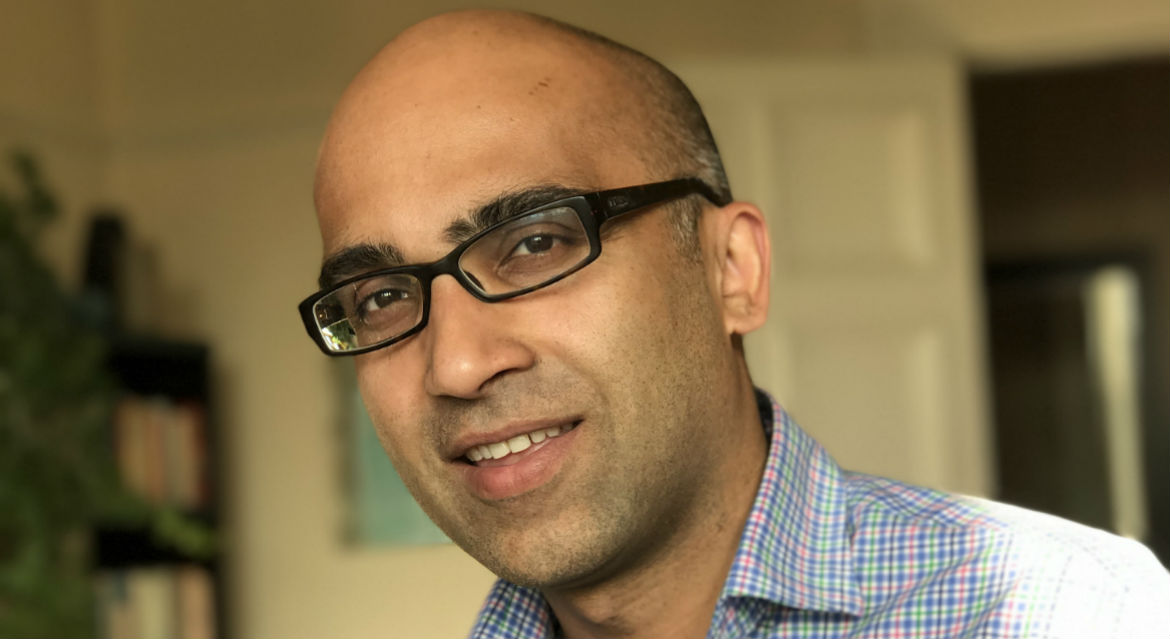Royal Society awards Francis Crick Medal and Lecture to Dundee researcher
Published On Tue 18 Jul 2017 by Roddy Isles

Dr Miratul Muqit, of the University of Dundee, has been awarded the prestigious Francis Crick Medal and Lecture by the Royal Society in recognition of discoveries that have led to better understanding of the causes of Parkinson’s disease.
Dr Miratul Muqit is a Consultant Neurologist and researcher at the MRC Protein Phosphorylation and Ubiquitylation Unit (MRC-PPU) at the University. He is the first practicing clinician to receive the Crick Medal, one of the most prestigious awards in biological sciences.
Francis Crick was one of the most significant scientists in the past century, working with James Watson to solve the structure of DNA in 1953.
The Francis Crick Medal Lecture is given annually in any field of biological sciences. Preference is given to genetics, molecular biology and neurobiology, the general areas in which Francis Crick worked, and to fundamental theoretical work, which was the hallmark of Crick’s science.
Dr Muqit said, “I feel immensely privileged to be following in the footsteps of the many great scientists who have previously been invited to give the Crick Lecture. The award is a wonderful reflection of the strength of the scientific and clinical environment here in Dundee.
“I am extremely grateful to members of my laboratory who have contributed to our success and to the patients whose optimism and hope for finding a cure for Parkinson’s is a constant inspiration. My research has also benefitted from long-term funding from the Wellcome Trust and Parkinson’s based charities which has been vital for our past and on-going work.”
Dr Muqit has helped make a series of discoveries which have improved our understanding of the causes of Parkinson’s disease.
In 2004 he was a key member of the London-based team that discovered a gene known as PINK1 as being mutated in Parkinson’s patients. Since 2008 he has been based at the University of Dundee, working on understanding the mechanism by which disruption of the PINK1 gene causes Parkinson’s.
This has led to several important breakthroughs and revealed a remarkable process of how PINK1, together with another gene called Parkin, plays a crucial role in keeping brain cells healthy by ensuring that the energy-producing centres known as mitochondria are efficiently degraded and removed upon exposure to any damaging stress.
Professor Dario Alessi, Director of the MRC-PPU, was also the last Scottish researcher to be awarded the Francis Crick Medal and Lecture, in 2006.
Professor Alessi said, “This year is the 200th anniversary of the first clinical description of the disease by James Parkinson, yet there are still no current treatments to slow down the progression of the disease.
“Miratul is one of the few people working in neurodegeneration who has a fantastic knowledge and expertise of both the medical as well as basic research arenas. He has made it his mission to generate fundamental knowledge and technologies that can lead to better diagnosis and treatment of Parkinson’s in the future.
“The award of the Francis Crick Medal and Lecture recognises the great advances Miratul and his team have made and provides a prodigious boost to that research.”
The Francis Crick Medal and Lecture is one of the annual prizes awarded by the Royal Society, the oldest scientific academy in continuous existence. The awards recognise exceptional scientists engaged in challenging research to open up new possibilities and new applications.
Venki Ramakrishnan, President of the Royal Society, said, “The Royal Society has a long-standing tradition of celebrating the best and brightest scientists. The winners of this year’s medals and awards have made outstanding contributions to their field and I congratulate them for their distinguished work and the advancement of science as a whole.”
For media enquiries contact:
Roddy Isles
Head of Corporate Communications
University of Dundee
Nethergate, Dundee, DD1 4HN
Tel: +44 (0)1382 384910
Mobile: 07800 581902
Email: r.isles@dundee.ac.uk